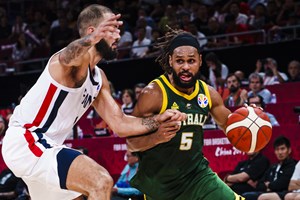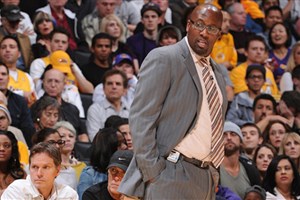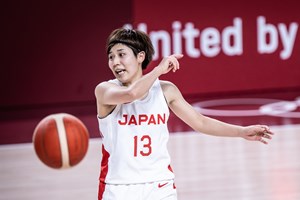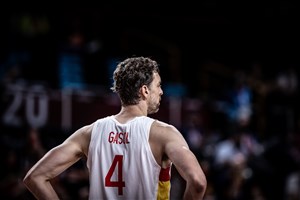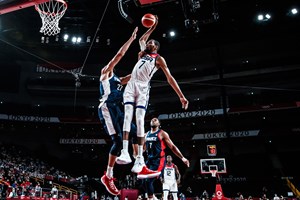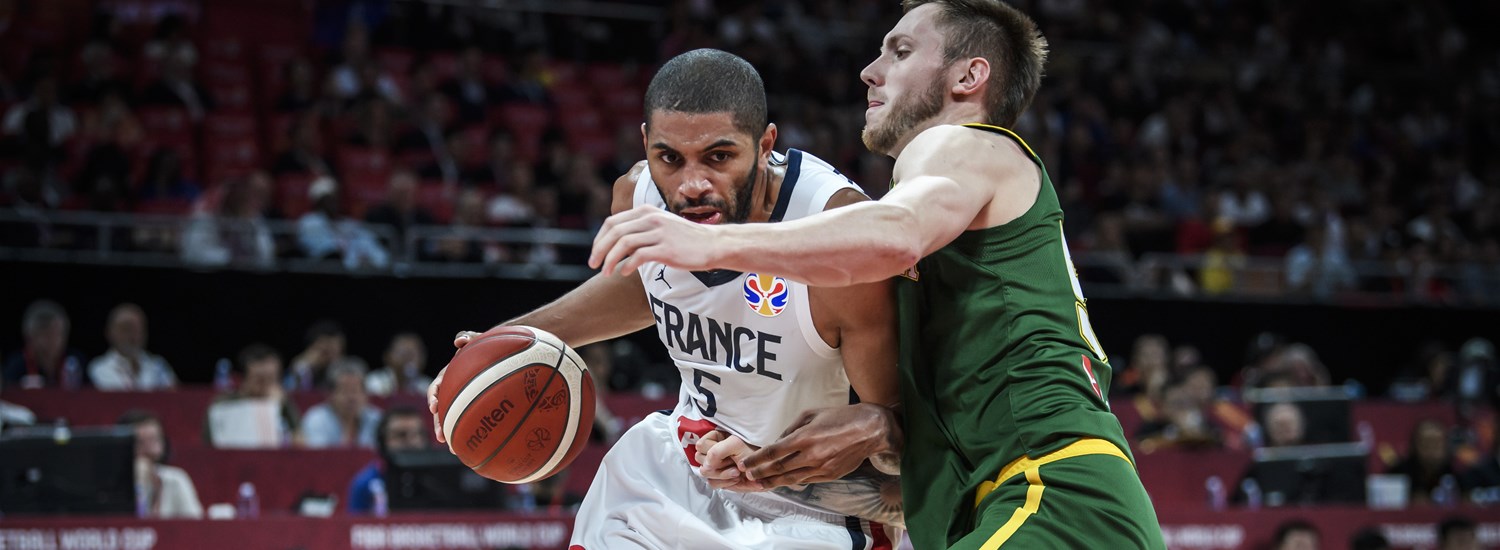
France captain Batum carrying on his father's legacy on the basketball court
CHARLOTTE (USA) - Well before he won a gold medal with France in the FIBA U16 European Championship 2004, it was clear that Nicolas Batum had inherited his father's talent for basketball.
It was also a concern for much of his life that he might have also inherited something which led to his father's death at just 30 years old.
Prior to boarding a plane to Paris where his Charlotte Hornets will face Giannis Antetokounmpo's Milwaukee Bucks on Friday, Batum spoke to the Charlotte Observer about one of his earliest and most painful memories.
His father, Richard Batum, was a rugged power forward who emigrated from Cameroon to play professionally for Proville in northern France.
"I remember it all," Batum told the Observer. "When you see your dad die before your eyes, it's so difficult to grow up with."
He had elaborated on that moment as well in an interview with Sports Illustrated in 2012. "That's a terrible memory. I think about it sometimes."
"HE WAS A BASKETBALL PLAYER, AND SO I HAVE TO DO IT TOO. I WOULD TALK ABOUT IT WHEN I WAS A KID. AT SCHOOL PEOPLE WOULD ASK ME, 'WHAT DO YOU WANT TO DO WHEN YOU BECOME A GROWN MAN?' I WANT TO PLAY BASKETBALL."
"I just remember he got fouled and went back to the free-throw line to shoot his free throws, and then he was falling down at the free-throw line. I can remember when my father went down, and I can remember later, when I wake up, all of the TV stations around and my mom crying and all the craziness going around. Here I was two years old, but I've got memories about it."
Instead of driving Batum away from the game, it drew him towards it. The loss gave him a sense of purpose.
"I started playing very early. I felt I had to do something in basketball to finish it," said Batum. "I had to do something for him."
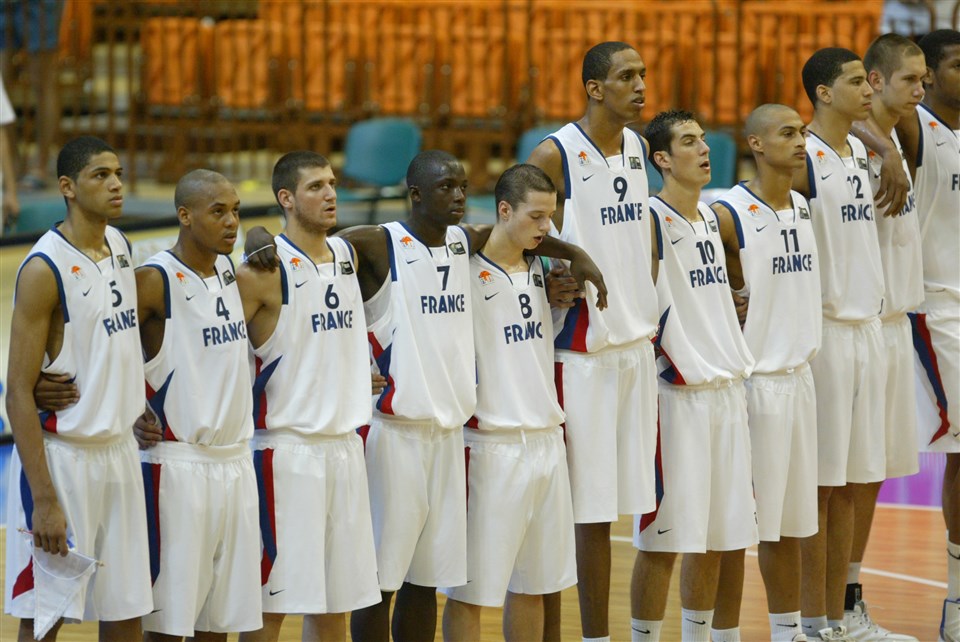
Batum (far left) with France at the FIBA U19 Basketball World Cup 2007
"I think I have to continue his legacy. He was a basketball player, and so I have to do it too. I would talk about it when I was a kid. At school people would ask me, 'What do you want to do when you become a grown man? I want to play basketball'. That's it. That's all I want to do. Because I knew he was a player, I just wanted to play basketball. I didn't know I was going to play in the NBA; I just wanted to be a basketball player somewhere. But now it's good for me to be in the NBA, because I know he's proud of me and watching down on me.''
Rated one of the best young players in Europe, the 19 year old Batum's move to America seemed certain. The success of Tony Parker, Boris Diaw, Mickael Pietrus and Ronny Turiaf had proven the ability of young French players to compete in the world's top circuit.
As he made the rounds of pre-draft workouts in 2008, an electrocardiogram, commonly called a stress test, during his physical with the Toronto Raptors led to the team physician asking if there was any family history of heart issues. He told them about about his father, which set off a ripple effect.
"He was red-flagged — no one would work him out," his agent told the Observer.
Batum was devastated.
"Why me? Why now?"
He felt that what his entire future as a basketball player was at risk. If the NBA passed on him, could he still play in Europe, for France?
"It really did feel like, ‘Either you'll (be cleared to) play basketball, or go home and do something else entirely.' That was the toughest moment of my life."
His agent set up tests at the Cleveland Clinic and the San Antonio Spurs arranged for him to see a second specialist in Texas. Both found nothing of concern. Yet there was no guarantee he would be drafted in the first round, or at all.
Italy's Danilo Gallinari was taken by the Knicks with the 6th pick. Toronto passed on Batum and chose Roy Hibbert at 17. The then-Charlotte Bobcats took Batum's countryman Alexis Ajinca at 20. The Spurs had the 26th pick but never got a chance as the Rockets selected Batum at 25 and sent him to Portland in a prearranged trade.
And so began Batum's NBA career, now in its 12th season. A year after joining the Trail Blazers, he made his senior debut for France at the FIBA EuroBasket 2009.
He would win a gold medal at EuroBasket 2013, bronze in 2015 and help France to sixth-place finishes in both the 2012 and 2016 Olympic Games as well as those two third-place podiums at the FIBA Basketball World Cups in 2014 and 2019.
Already qualified for the Tokyo 2020 Olympic Basketball Tournament, Batum believes that France can challenge for a gold medal in Japan this summer.
At the World Cup last September, they beat the USA in a Quarter-Final 89-79 and looked towards a best-ever finish in the world's top tournament. Then they ran into a South American buzzsaw.
Of the Semi-Final defeat, he told FIBA, "We lost against a team of Argentina that was really good that day. We weren't."
"When we got home, we said mission almost complete," Batum followed. "We could do better. We were okay with (winning a bronze medal) but we weren't completely happy too."
Batum acknowledged that the World Cup squad was a team in transition. He spoke about the standout performances of Rudy Gobert and Evan Fournier.
"Those two guys; it is the time for them because it is a new era in France. Tony is gone, Boris is gone. For Rudy it is time to show the world his new rank. It is time for Evan to take over what Tony left on offense."
He said it was a coming out party for Frank Ntilikina as well. "We lost (Thomas) Heurtel during the preparations. Frank had no choice. He had to be the main point guard. It was huge because we knew he could be a great defensive point guard. We trusted him and talked to him a lot during the tournament."
After significant departures, Batum is the link to the previous success and what it can be. He says he will play any role that coach Vincent Collet asks of him and feels confident about their chances in Japan. "We know it was good for French basketball in the way we played during the tournament."
So says the heart of Les Bleus.
FIBA


